
Interlocking Concrete Block Retaining Wall
Interlocking concrete blocks are modular blocks that lock together without the use of mortar. Made from poured concrete, the blocks have protruding elements that allow them to securely interlock with one another. Unlike regular concrete blocks that require mortar, interlocking blocks can be stacked and arranged in various patterns without any.

Concrete Blocks Maddog Concrete
Building a retaining wall with interlocking concrete blocks. The first important factor before building a retaining wall is determining the depth of the foundations otherwise known as the footings. If the soil is firm and well-drained, 300mm should be enough. Alternatively, if the soil is not as firm and unstable, 450mm would be suitable.
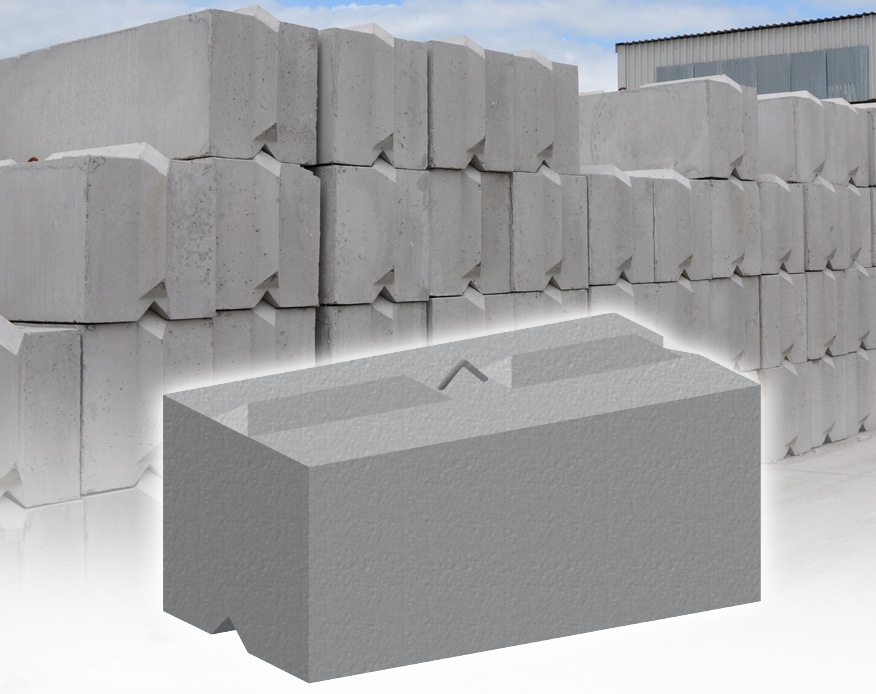
Vee™ Interlocking Concrete Blocks MSM BLOCK HIRE
How much do interlocking concrete blocks weigh? In regard to the weight of the blocks, it will vary from size to size, and from the concrete being used. But as an example, 1800 x 600 x 600 concrete block can weigh 1560 kg, this can fluctuate as different types of concrete have different levels of density.
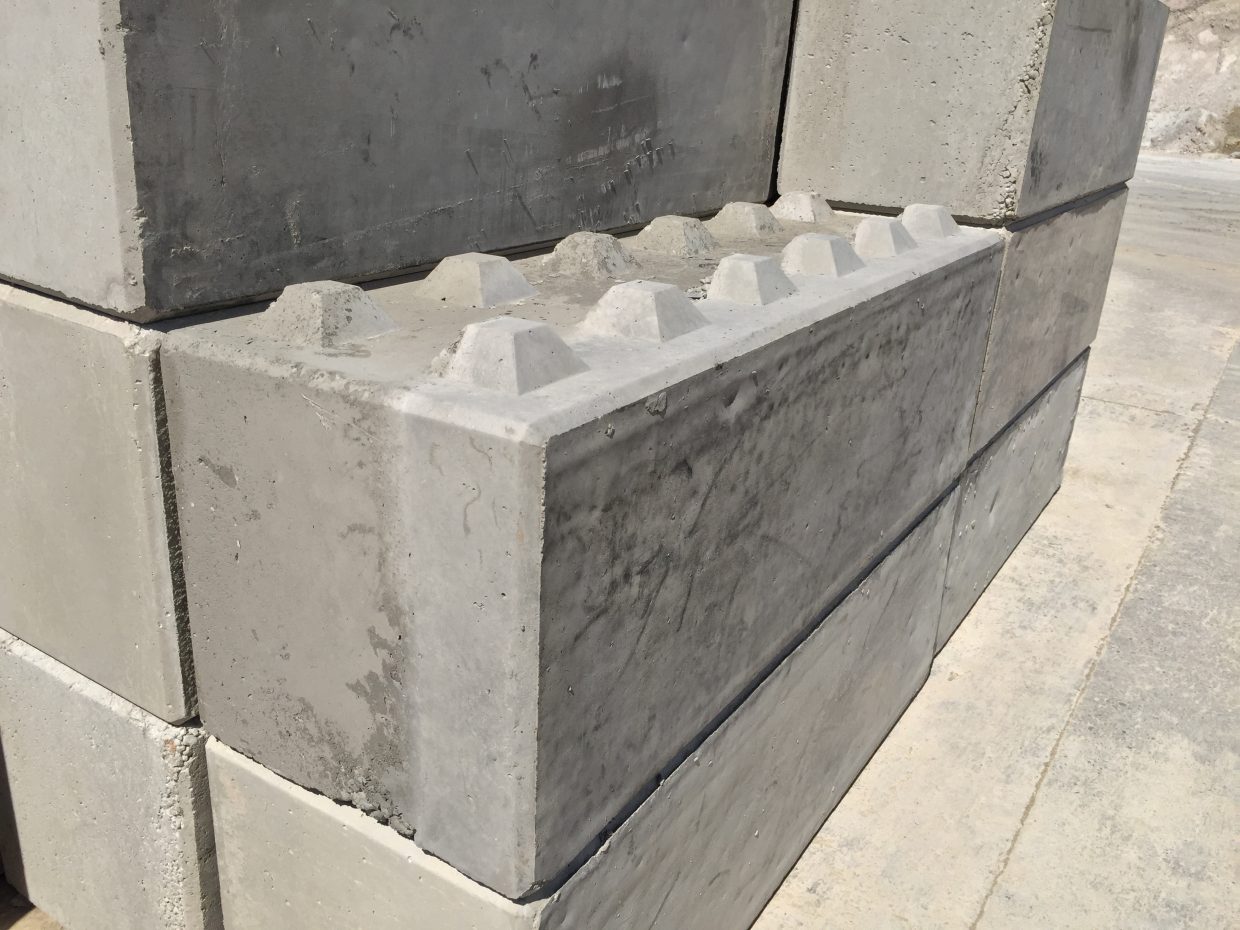
Betonblock Interlocking Concrete Blocks Hanford Sand & Gravel
To achieve this, you must measure the area where you will be laying the interlocking Concrete blocks. After getting an idea, look for the preferred size which suits your floor and budget. Additionally, clear the area of any debris, vegetation, or rocks and ensure the ground is level. If your project involves a retaining wall, consider checking.

how to built concrete interlocking block house with cement habiterra block for economy and fast
Dig a Trench. Dig a trench along the area where the wall will be built. The depth of the trench must match the height of a single block, plus 6 inches for a gravel base. For example, if you're using 6-inch high blocks, you'll need a trench that is a minimum of 12 inches deep and 2 times the depth of the wall unit wide.
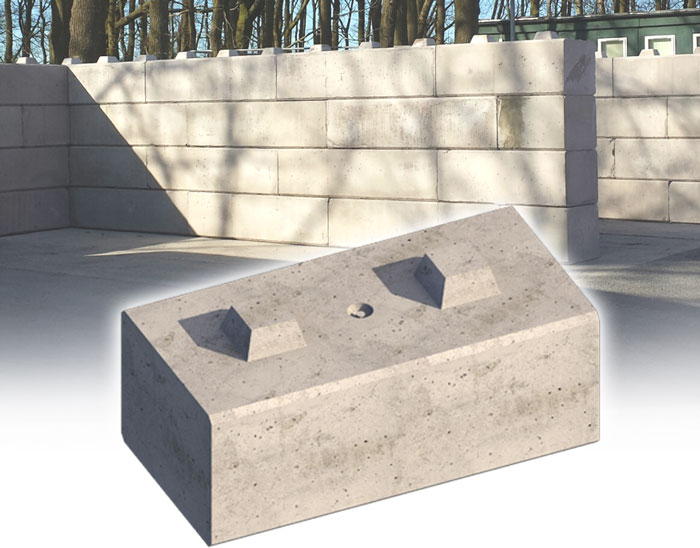
Duo Interlocking Precast Concrete Blocks for Temporary works and Cofferdams
The TERRAFORCE L15 interlocking, mortarless, concrete hollow block retaining wall system provides the solution to projects requiring soil retaining walls, erosion protection, garden terracing and reinforced slopes. Uses range from landscaping, garden walls and terraces, as well as civil engineering projects where soil retaining is required.
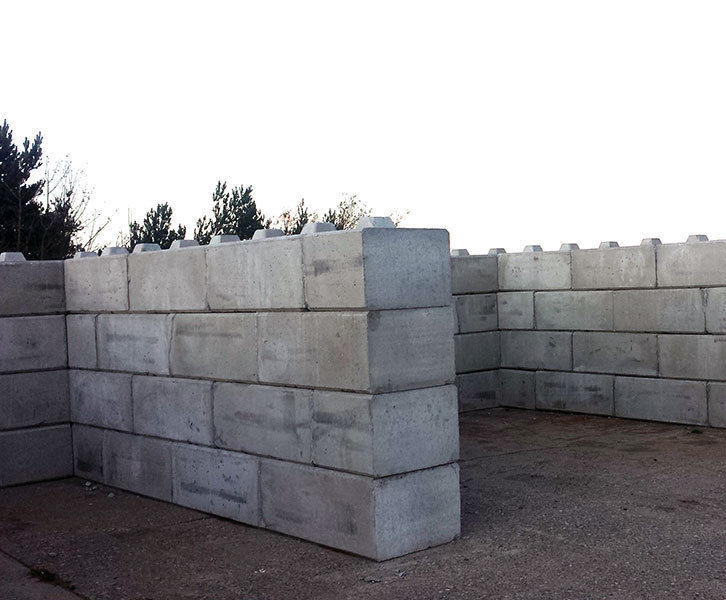
Duo™ interlocking concrete blocks Elite Precast Concrete ESI External Works
Interlocking Concrete Blocks EPCL-2017-RWRG-01-P01 June 2017 2 1. Introduction This document has been prepared to provide guidance when designing retaining walls using Elite Precast Concrete Limited's interlocking concrete blocks. It is intended to assist civil/structural engineers and architects in
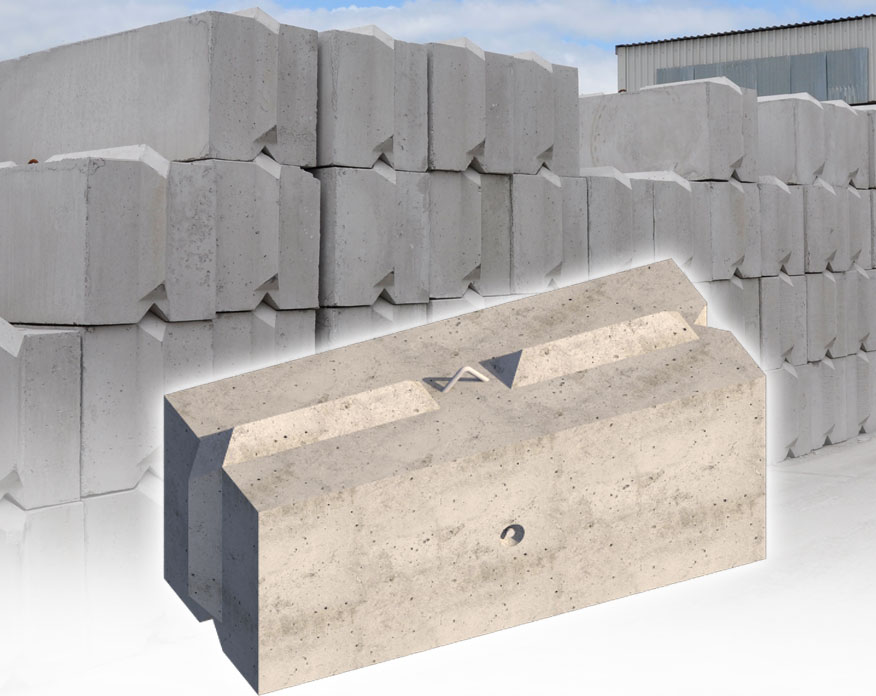
Vee Interlocking Precast Concrete Blocks for Temporary Works and Cofferdams
As an easy-fit option, interlocking concrete blocks are most commonly used for the construction of temporary or emergency buildings, walls and other structures. This is because they are easy and quick to install, and require minimal materials and minimal specialist labour.

DryStacked Interlocking Masonry System (Mortarless)
We also manufacture 800mmx800mm Blocks for those projects requiring greater load bearing blocks. These come in Lengths of 800mm and 1600mm as Standard. WHY CHOOSE SWIFTBLOCK? Some of the following reasons are why you should choose SWIFTBLOCK over other interlocking concrete blocks on the UK market.
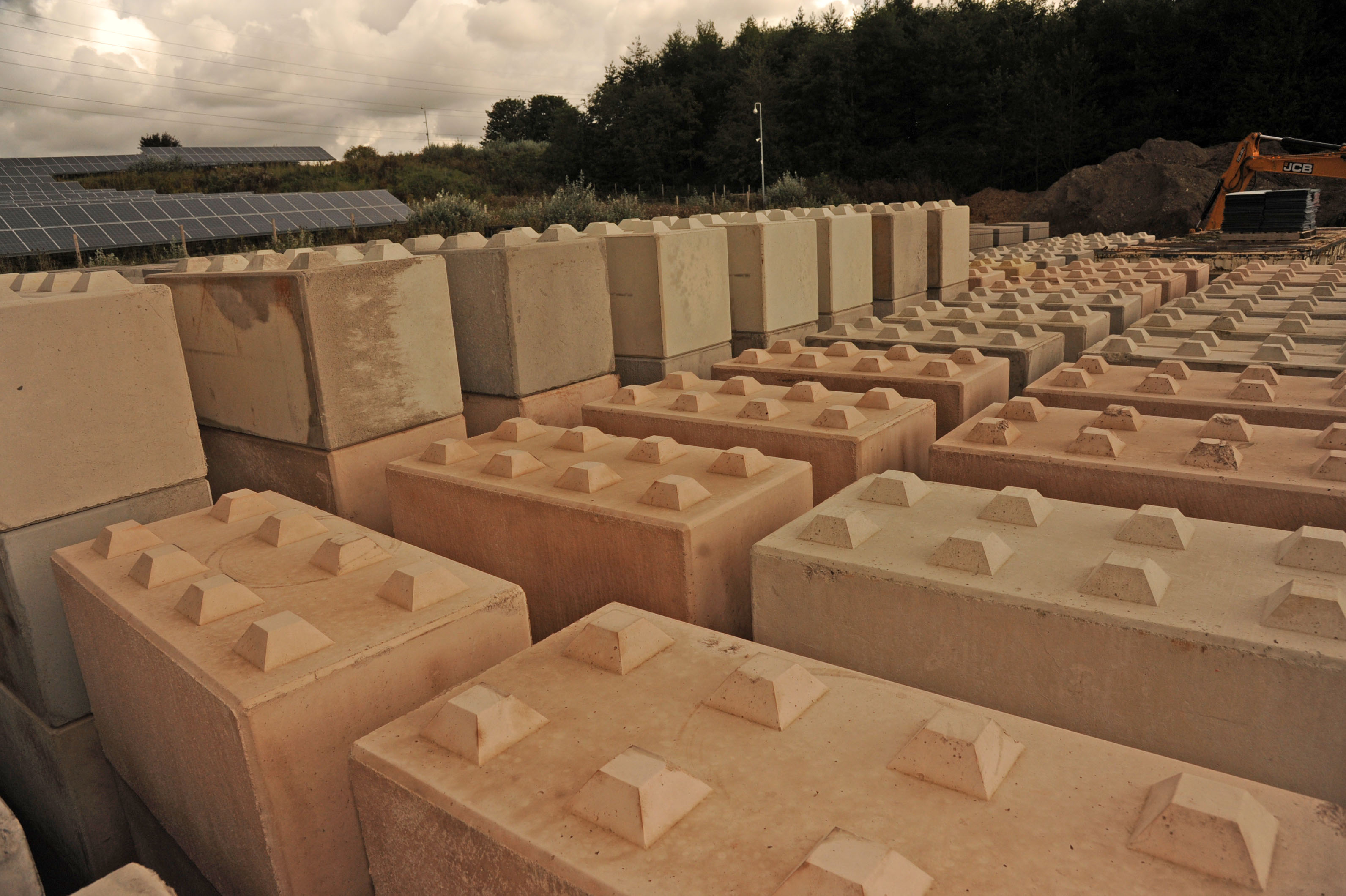
Concrete Interlocking Barrier Blocks Wiltshire Concrete
Lev-Co Blocks are a highly adaptable large interlocking concrete block which offer the ability to build an easily removable fully interlocking structure, on any level load bearing surface. Walls and structures can be built quickly and economically as no foundations are required for construction and as a temporary structure may not require planning permission.

Installation of Interlocking Retaining Wall Blocks Can Ridge Industries
Our interlocking blocks click together to build desired structures. Interlocking blocks is the best way to summarise how QUICKBLOCK works to a novice. Our interlocking blocks click together to build desired structures. Skip to content. [email protected]; 01786 643 939; Linkedin-in Youtube Instagram Facebook Twitter.
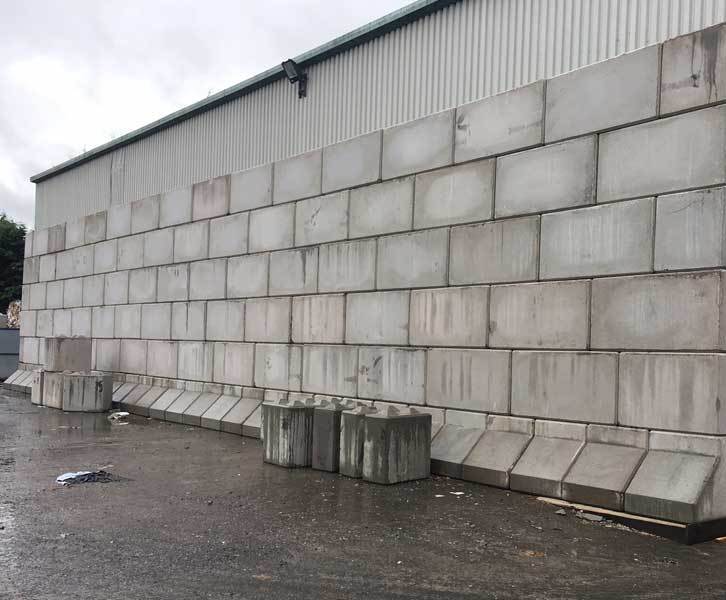
Legato™ interlocking concrete blocks Elite Precast Concrete ESI External Works
Modular Interlocking Concrete Blocks. We manufacture and install precast concrete interlocking MegaBlocks. They are produced from a carefully controlled mixture of quality aggregates and cement to bring you a premier block, designed to the highest standards of dimensional accuracy. They are used in areas where companies need temporary walls.
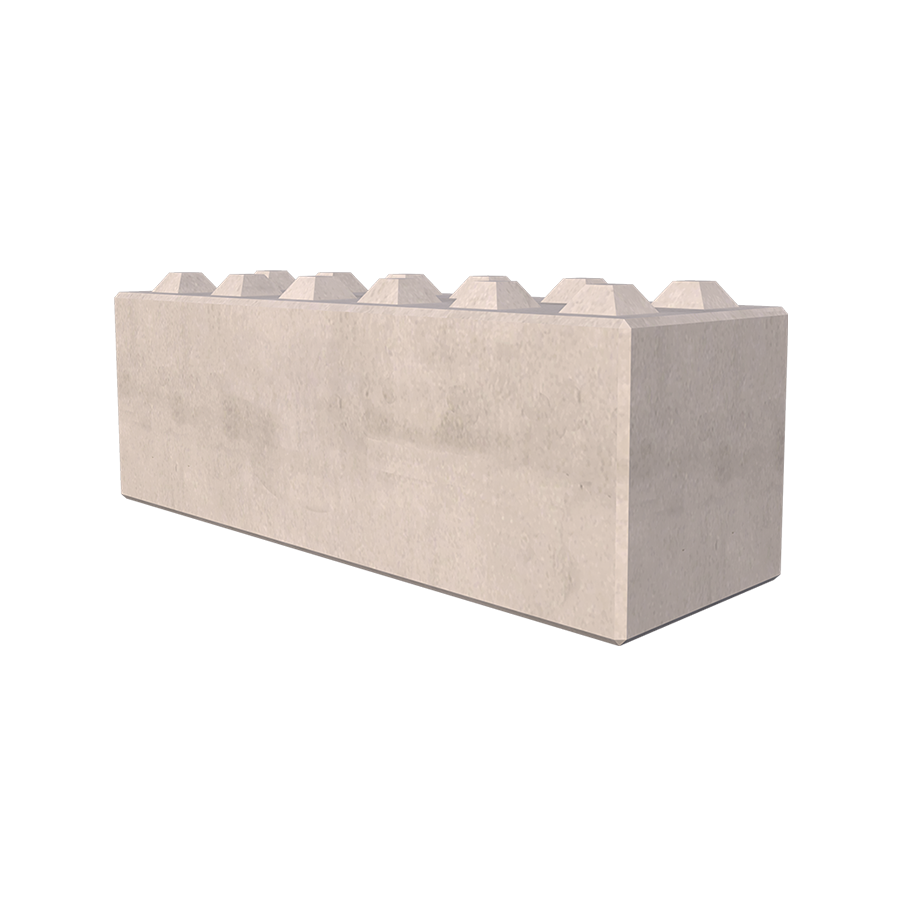
Interlocking Concrete Blocks JP Concrete
Interlocking Concrete Stacking Blocks Our Interlocking Concrete Blocks are exceptionally easy to handle and can be stacked without any cement. Available in two sizes: 800mm x 800mm x 800mm 1600mm x 800mm x 800mm Concrete blocks for easy builds We are a leading supplier of Interlocking Concrete Blocks.

Interlocking Concrete Blocks Myers Building Supplies
Interlocking retaining wall blocks are good for building a solid wall without mortar. Some blocks are made with flanges that slip over the rear edge of the preceding course; others rely on a system of pins. You don't have to practice throwing mortar or setting blocks with either type, but you'll get an attractive addition to your landscape.
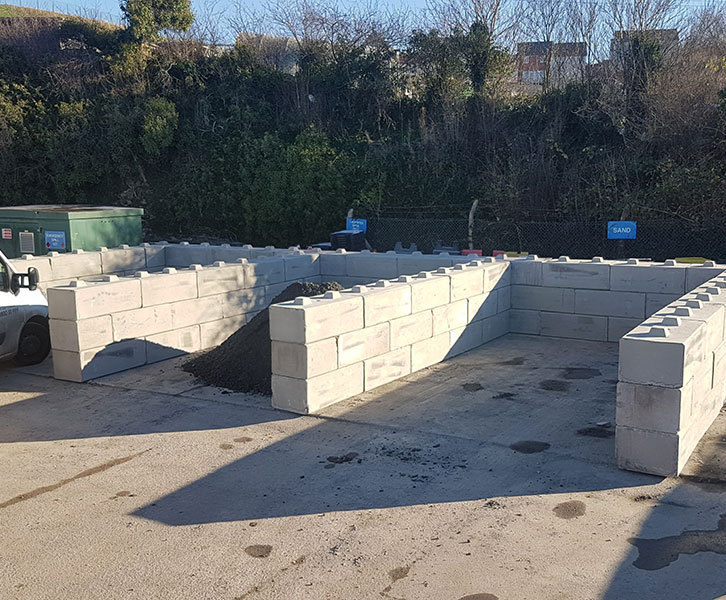
Duo™ interlocking concrete blocks Elite Precast Concrete ESI External Works
Our Interlocking Concrete Blocks (Myers Blocks) offer a quick, easy and cost-effective way of creating permanent and temporary walls and bays. These interlocking blocks cut the need for costly labour and traditional building methods to create solid, hard wearing building structures for various applications. Benefits Interlocking Concrete Blocks
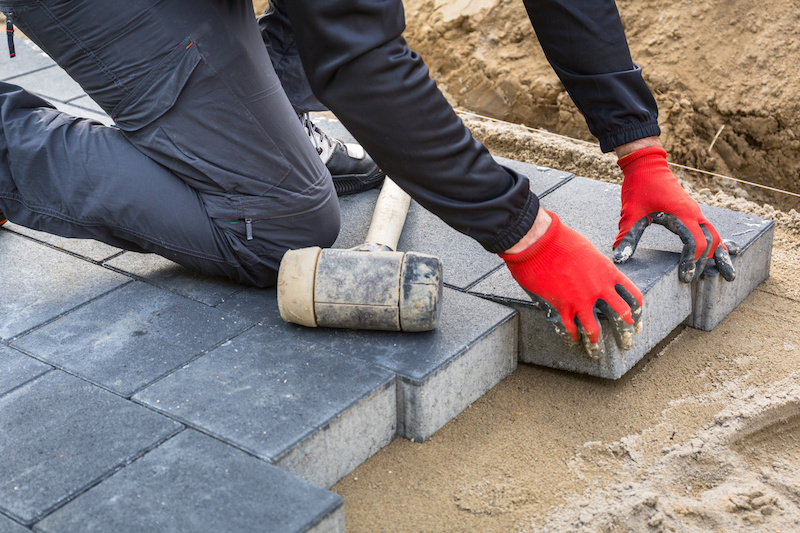
How To Properly Install Interlocking Concrete Blocks
No, interlocking concrete blocks bypass the need for any binding elements such as cement. As the name suggests, the 'interlocking' part refers to the ability of these blocks to create a secure connection between each other through studs and recesses.